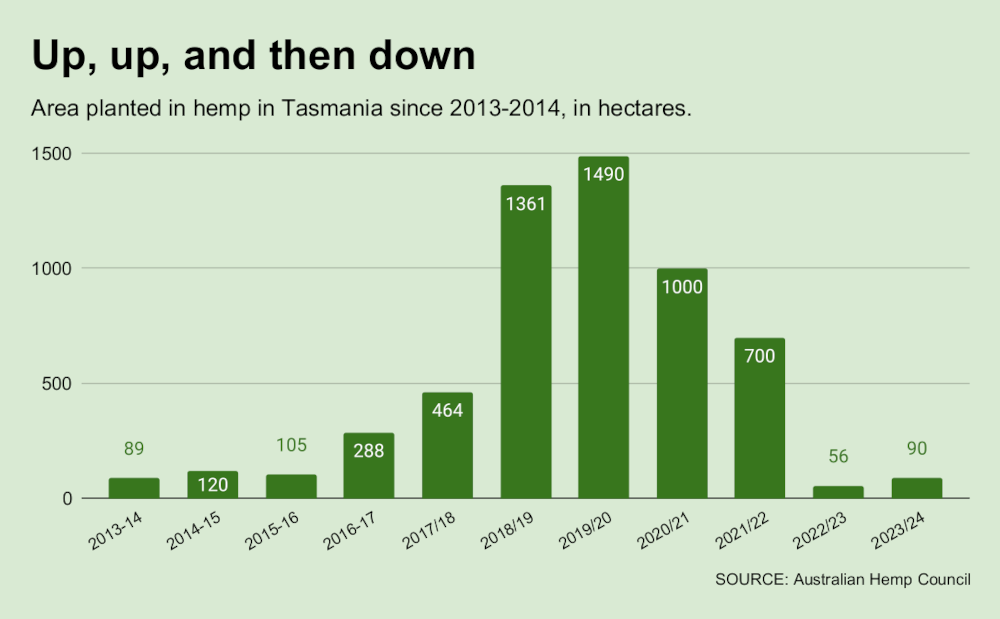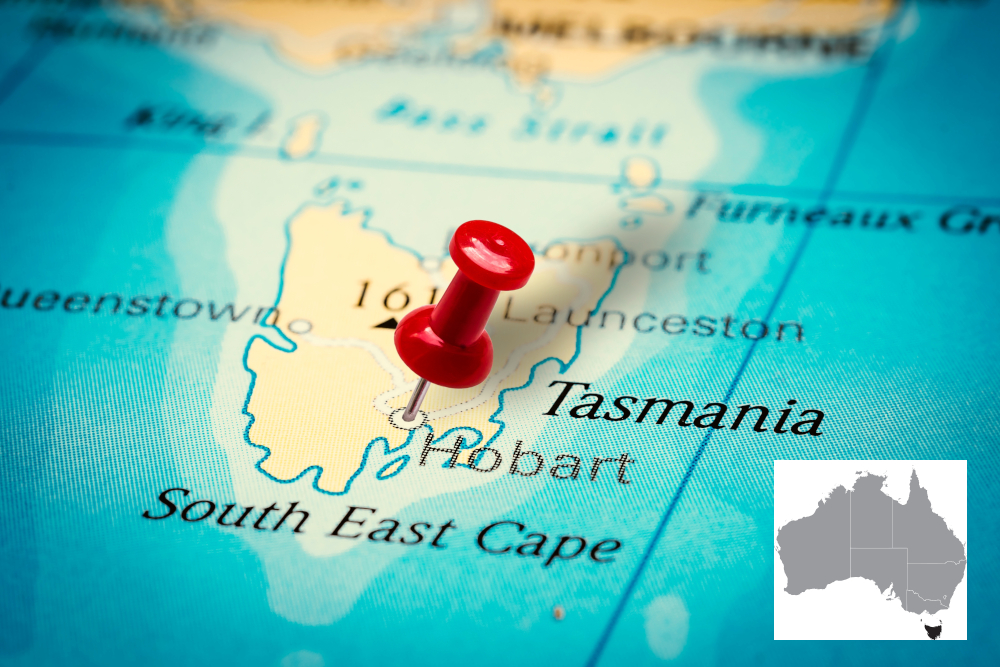A bill that would simplify things for hemp producers in the Australian state of Tasmania has passed the House of Assembly, the Parliament’s lower body.
Now facing a vote in the Legislative Council, the Industrial Hemp Amendment Bill 2024 aims to streamline regulations related to licensing issues, research, and expanded usage for hemp crops.
“Industrial hemp has the potential to be an important crop for the state and is making a valuable contribution to achieving our target to grow the farm gate value of Tasmanian agriculture to $10 billion by 2050,” said Jane Howlett, the state’s Minister for Primary Industries and Water, who has backed the bill.
Addressing stagnation
The government hopes the changes will help to revive a sector that has fallen off sharply over the last four years. A recent report showed that Tasmanian hemp fields remained severely contracted in the 2023-2024 season. While fields doubled to about 90 hectares, overall hectarage is down from a historic high of roughly 1,500 hectares at a peak in 2019-2020.

The proposed changes include:
- Better transparency in situations where hemp crops test above 1% THC content, the dividing line between hemp and marijuana observed by Australian states. The bill calls for the secretary of the Department of Natural Resources and Environment (NRE Tas) to direct crop destruction or alternative actions where a crop that tests above the THC limit has been “grown in good faith” by a licensee who “has otherwise complied with the license conditions.”
- Specifying that police officers should be considered classified inspectors under so that they may conduct investigations without needing to be appointed by the NRE Tas secretary.
- Greater consistency with existing legislation in relation to police powers, the assessment of suitability of applicants, and definitions for “fit and proper persons” for licensing applicants.
- Authorizing police officers “to possess and supply industrial hemp.”
- Renaming of a “special license” to a “special research license” for permits that allow research into hemp varieties that have more than 1% THC, setting criteria for those licenses and providing more efficient review of applications.
- Allowing hemp straw to be used as a mulch in the horticultural industries. The change would give growers an additional income stream and enable hemp by-product to be better used in a circular economy, Howlett said. The state government is already allowing a pilot scheme that allows the use of hemp stubble as mulch.
‘Nation-leading’
“Tasmania’s industrial hemp industry is nation-leading; thanks to our regulatory environment and to the hard work and determination of our passionate hemp growers and ongoing advocacy from the Tasmanian Hemp Association and the Australian Hemp Council,” Howlett said.
“We want to ensure growers can get maximum value for their crops by using more of the plant, not just the seed, for value-added products including textiles, paper, fuel and food.”

